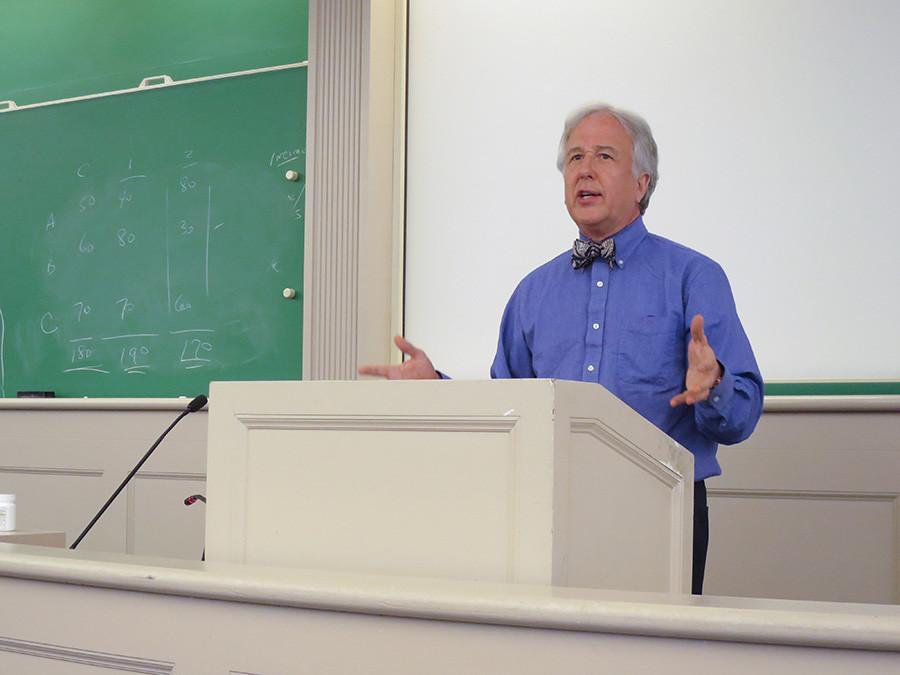Social media as journalism discussed
Bloomberg News founder Matthew Winkler discusses the purpose of journalism in the “Free Expression and Truth in the Age of Twitter” panel on Tuesday.
April 22, 2015
Matthew Winkler, editor-in-chief at Bloomberg News, explored the link between social media and journalism in an event titled, “Free Expression and Truth in the Age of Twitter” hosted by the NYU Federalist Society on Tuesday in Vanderbilt Hall.
One of the primary focuses of the lecture was the protest chant “Hands up, don’t shoot” and its misattributed origins. Winkler blamed this false narrative on social media.
While the phrase was supposed to have been based on Michael Brown’s actions preceding his death, it later came to light that Brown had not raised his hands above his head before being shot by Ferguson, Missouri police officer Darren Wilson. Winkler argued social media obscured the truth by repeating a narrative it liked, and it was the more traditional outlets that eventually found the truth.
“As the Washington Post — and others — have since reported, all evidence points to the fact that ‘Hands up, don’t shoot’ never happened,” Winkler said. “When investigators spoke to several individuals who claimed to have witnessed Brown holding his hands up in surrender, all of them acknowledged they did not actually witness the shooting but rather repeated what was told to them in the immediate aftermath.”
Despite this factual inaccuracy, Winkler said it was still a useful narrative because it drove people to action.
“We can acknowledge why ‘Hands up, don’t shoot’ struck a chord with so many people,” Winkler said. “Because it did in fact foster a national dialogue on race relations, and it served as a rallying cry for law enforcement accountability.”
While social media were useful for the national discourse about Brown’s case in Ferguson, Winkler said it is still not a viable form of journalism.
“The news business, if it is to succeed as a business, really depends not on spontaneous expression but on the most carefully considered, relentlessly prepared approach to events every time,” Winkler said.
Steinhardt sophomore Hannah Weverka said while social media and citizen journalism have led to wrongful reporting in some cases, oftentimes social media are more useful than harmful to journalism’s ultimate goal of informing the public on what has happened.
“Social media can bring truths to light that weren’t known before,” Weverka said. “Overall, I think there’s just more information — more false information, but more true information too. All of this means that journalists have to be even more careful with fact-checking than they may have in ages past.”
CAS freshman Rob DeSisto said all media, traditional or otherwise, are biased, and therefore it is up to the consumer to discern what is accurate.
“The onus of finding out what media portrays the most accurate account would fall on the individual and not the media outlets to market that,” DeSisto said.
Winkler said he believes social media are not going to disappear anytime soon and will continue to make mistakes, and traditional journalists must be there to catch them.
“This is not the first time, and I daresay it won’t be the last time where, in an age of spontaneous expression, where we can say anything and it’s delivered immediately, spontaneously and preserved forever, that we are simultaneously taking the risk that what we say is often misleading, and worse, false,” Winkler said. “This is something we continue to witness over and over again.”
A version of this article appeared in the Wednesday, April 22 print edition. Email Justine Morris at [email protected].




























































































































































